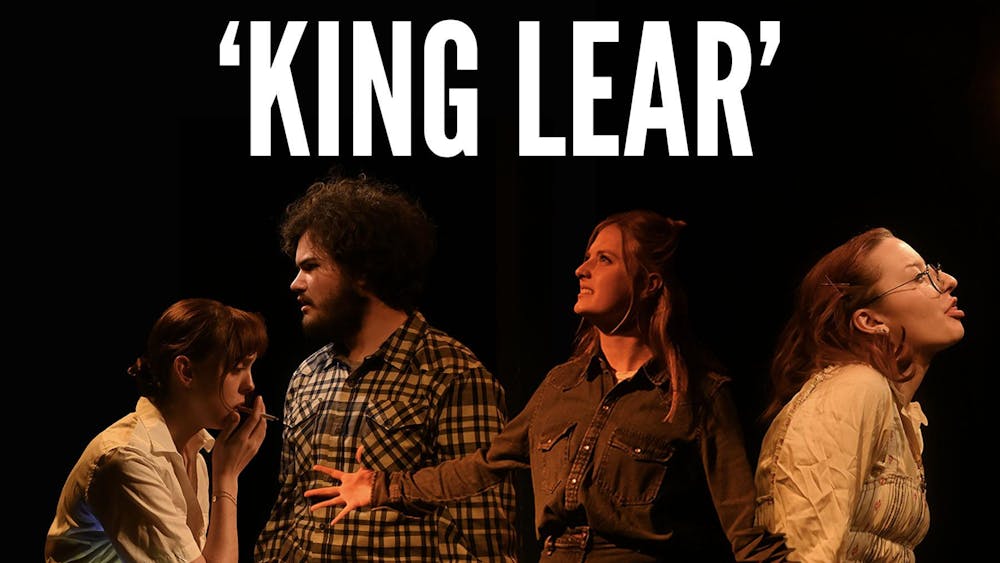You have probably never heard of the British TV series “We Are Lady Parts,” and it would have flown under my radar as well if not for the film “Polite Society.” A review of this film led me to discover other projects from the writer and director, Nida Manzoor. Manzoor created “We Are Lady Parts,” pulling inspiration from her own life and upbringing. I binged the entire first season in one day and watched the second one over the summer.
Set in modern-day London, “We Are Lady Parts” follows a microbiology Ph.D. student, Amina Hussein, who is determined to find a husband. Meanwhile, a punk band called “Lady Parts,” formed by lead vocalist Saira, bass player Bisma, drummer Ayesha and band manager Momtaz, is in search of a lead guitarist. Ayesha gets her brother Ahsan to hand out flyers advertising auditions, and Amina shows up since she has a crush on him. Having briefly gone to school together, Saira remembers Amina as well as the fact that she plays guitar, ultimately convincing her to join the band in exchange for Ahsan’s contact information.
When the idea of an all-female punk rock band is pitched, it isn’t likely that you’d be picturing Muslim women in those roles. The show shatters stereotypes and tropes that we often see in media portrayals of Muslim women. They are often portrayed as subservient, quiet and oppressed, but the women in “We Are Lady Parts” are loud, angry, messy, assertive and mostly autonomous. They are treated as any other human beings: They make their own choices, they make mistakes, they grow, they learn, they change.
The series features punk covers of pop and rock songs as well as original songs that are well written both lyrically and musically, shockingly funny, but still meaningful. Manzoor and her siblings write the music in the series, with original songs such as “Ain’t No One Gonna Honour Kill My Sister But Me,” “Voldemort Under My Headscarf” and “Bashir With the Good Beard.” The latter features Amina’s first guitar solo which made my soul feel like it was levitating and marked the moment the series became one of my favorites.
The band as well as the series “We Are Lady Parts” are both perpetually at risk of being misunderstood, and — inspired by a real event — this becomes a plot point in the series.
As the band gets more popular through online streaming, they are approached by an influencer and journalist named Zarina who will write an article about them for an online magazine. But since all five women do not fit the societal mold of a Muslim woman, Zarina distorts their words to create the narrative of the “bad girls of Islam.” They are met with backlash and anger online, being told that they are not real Muslims and that they’re going to hell. After struggling through the hate, they realize they still have some fans despite everything, and the season ends with “Lady Parts” surviving the damaging article, reuniting for a concert and playing an uplifting cover of “We Are the Champions.” In Season 2, they still have the challenge of navigating the music industry with new songs, as well as further character development and a cameo from Malala Yousafzai herself.
The online backlash plot line is similar to what Manzoor experienced when she aired the original “We Are Lady Parts” pilot. What followed was an online barrage of hate labeling her as a “fake Muslim” who sought only to create negative and untrue portrayals of Muslim women that were not representative of the entire community. She deleted her social media accounts.
Whether or not you agree with the portrayal of Muslim women in the show, it is clear how realistic every character is. To me, this is a key aspect of representation: highlighting the diversity in appearance, experience and behaviors of people in a certain group, to portray them not as a general “Muslim woman” but as a human character who is a woman and is Muslim. It is impossible to portray the vastness of such a large group since every person contains multitudes, so why was Manzoor punished for not carrying that burden? What could be more representative than creating a story based around her own life?










